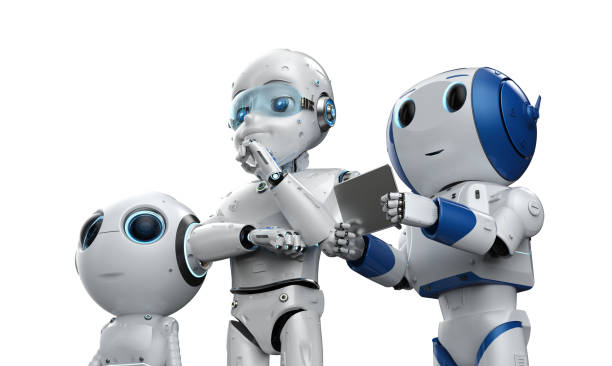Robots Are Getting Smarter – and That’s a Good Thing
In recent years, robotics has seen rapid advancements, fueled primarily by breakthroughs in artificial intelligence (AI). These technological strides are making robots not only smarter but more capable of taking on complex tasks across diverse sectors, from healthcare to manufacturing. As robots become increasingly intelligent, the question arises: Is this shift beneficial for society? The answer is a resounding yes. Smarter robots hold immense promise for both economic and social progress, bringing a host of opportunities for industries and individuals alike.
Advancements in Robotics and AI
Robots were once confined to repetitive, mundane tasks on factory floors, where they excelled in precision and efficiency. However, with the integration of AI, robots are now capable of performing far more sophisticated functions. AI-powered systems enable robots to learn, adapt, and even make decisions in real-time based on their environment. Whether it’s a robot learning how to fold a piece of clothing, assembling intricate electronics, or even assisting in complex surgeries, these advancements have expanded the scope of what robots can do.
Recent developments, such as the integration of large language models like GPT-4, have made it possible for robots to process vast amounts of data, allowing them to solve problems and engage in tasks that once seemed too complex for machines. Through machine learning, robots can now anticipate human actions, adjust to unstructured environments, and improve their performance over time. This level of autonomy opens up new possibilities, including personalized healthcare services, customer service bots, and automated logistics.
Economic and Social Benefits
One of the most compelling arguments for smarter robots is their potential to alleviate the burden on the human workforce. As industries face labor shortages, especially in areas like healthcare and manufacturing, robots are filling critical gaps. For instance, in elder care, robots can assist with daily tasks, offering both physical support and companionship to aging populations. In manufacturing, smarter robots can improve productivity and reduce the need for human intervention in dangerous or hazardous tasks.
In addition to filling workforce shortages, robots have the potential to create new economic opportunities. As industries embrace automation, new jobs will emerge in fields like AI training, robotics maintenance, and software development. Smarter robots can lead to more efficient production lines, higher-quality products, and faster service delivery, contributing to economic growth.
Overcoming Challenges
Despite the promising future of AI-powered robots, there are still significant challenges to overcome. While robots have the ability to process large amounts of data, they still struggle with complex decision-making in unstructured environments. For instance, robots must be able to navigate the unpredictability of human behavior and natural surroundings. Furthermore, the ethical considerations surrounding robot deployment are important to address. The fear of job displacement, as well as the implications of relying on machines for critical decision-making, requires careful regulation and oversight.
Additionally, integrating smarter robots into existing industries will require extensive infrastructure changes. Companies will need to invest in the research and development of new robotics systems, as well as the training of a workforce capable of working alongside advanced machines. Without such efforts, the full potential of smarter robots may not be realized.
Looking Ahead
Despite the challenges, the potential benefits of smarter robots far outweigh the risks. By continuing to advance AI technologies and refine the capabilities of robots, society can unlock new efficiencies and improve the quality of life across the globe. From enhancing productivity to solving complex global issues like climate change, smarter robots are not just a technological novelty—they are a key enabler of a better future.
As we continue to innovate and embrace the future of robotics, one thing is clear: smarter robots are here to stay, and they are undoubtedly a good thing.

